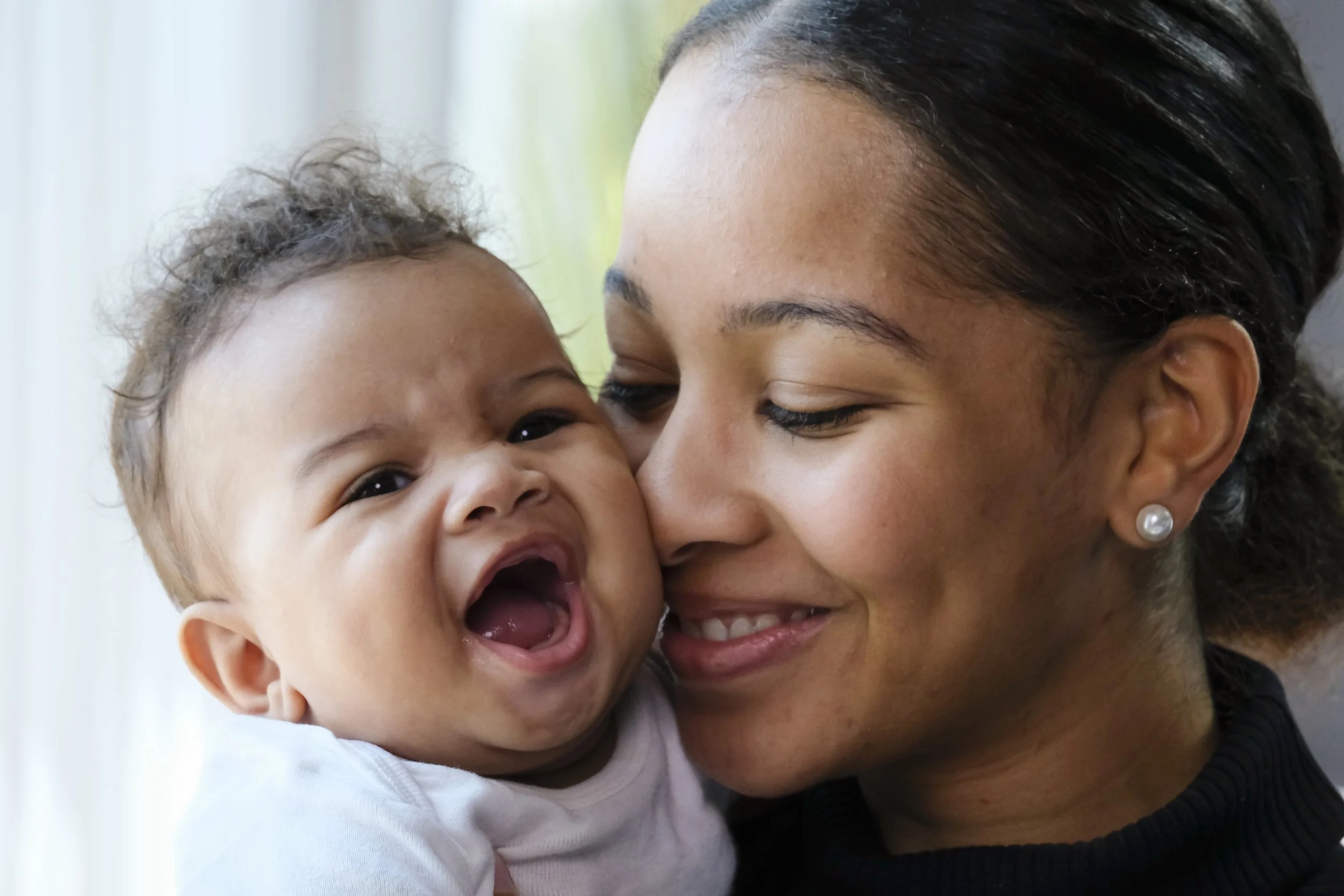Infant Mental Health Home Visiting (IMH-HV)
Supporting Families with Infants & Toddlers Through Relationship-Based Intervention
Program Overview
The Michigan Model of Infant Mental Health Home Visiting (IMH-HV) is a relationship-focused, psychotherapeutic, needs-driven intervention for parents and infants/toddlers ages 0 (pregnancy) to 36 months. Delivered by Master’s-level providers, IMH-HV is designed to support families experiencing risks to the parent-child relationship, such as trauma, mental health issues, or systemic adversity. Weekly home-based sessions focus on nurturing secure attachments, supporting healthy development, and preventing intergenerational trauma.
Target Population
Families with infants/toddlers aged 0–36 months, including during pregnancy, who face relational, environmental, or familial risk factors for developmental and mental health challenges.
Program Goals
For infants and toddlers: Promote secure attachment and reduce developmental and behavioral concerns
For parents: Strengthen caregiving skills, improve mental health, and support sensitive parenting Background
Core Components
Services delivered in the family home, including therapeutic contact with multiple caregivers
Focus on strengthening the parent-child relationship through joint sessions
Weekly 90- to 120-minute sessions, with flexibility based on family need
Guided by family-specific needs and responsive to child welfare involvement
Core interventions: emotional support, parenting guidance, advocacy, and mental health integration
Grounding in infant-parent psychotherapy and reflective supervision
Culturally responsive and diversity-informed practice Use of video for assessment and shared reflection
Parent/Caregiver Services
IMH-HV addresses disruptions in attachment, unresolved trauma, and caregiving challenges linked to stress, mental health concerns, or systemic issues. The approach includes support for all significant caregivers and coordinates with broader systems such as child welfare and healthcare. Program Delivery Delivered in-home, including adoptive, foster/kinship, birth family homes, and shelters Also available virtually via phone or video platforms Typically lasts 6–45 months depending on family need and child age
Background
Michigan is widely recognized as the birthplace of infant mental health practice. To support the sustainability of the Michigan Model of Infant Mental Health Home Visiting (IMH-HV), the Michigan Department of Health and Human Services partnered with faculty at Michigan Medicine’s Zero to Thrive initiative to conduct a rigorous evaluation of the model. This work, led by Drs. Katherine Rosenblum and Maria Muzik, was strengthened by the collaboration of core members of the Michigan Collaborative for Infant Mental Health Research (MCIMHR), who contributed to the design, implementation, and dissemination of the studies. Together, these efforts produced a robust evidence base through multiple university-partnered evaluations, which supported IMH-HV’s 2021 designation as an evidence-based model by the California Evidence-Based Clearinghouse (CEBC) and its ongoing national dissemination in collaboration with the Alliance.
Get Trained in IMH-HV
The Alliance for the Advancement of Infant Mental Health oversees training in the Michigan Model of Infant Mental Health Home Visiting (IMH-HV) for programs and systems outside of Michigan. If you are interested in bringing this relationship-based model to your community, we invite you to explore upcoming training opportunities and connect with us to learn more. Complete the interest form below.
To learn more about Infant Mental Health Home Visiting (IMH-HV), visit the California Evidence-Based Clearinghouse for Child Welfare—a trusted source of information and resources for professionals.

